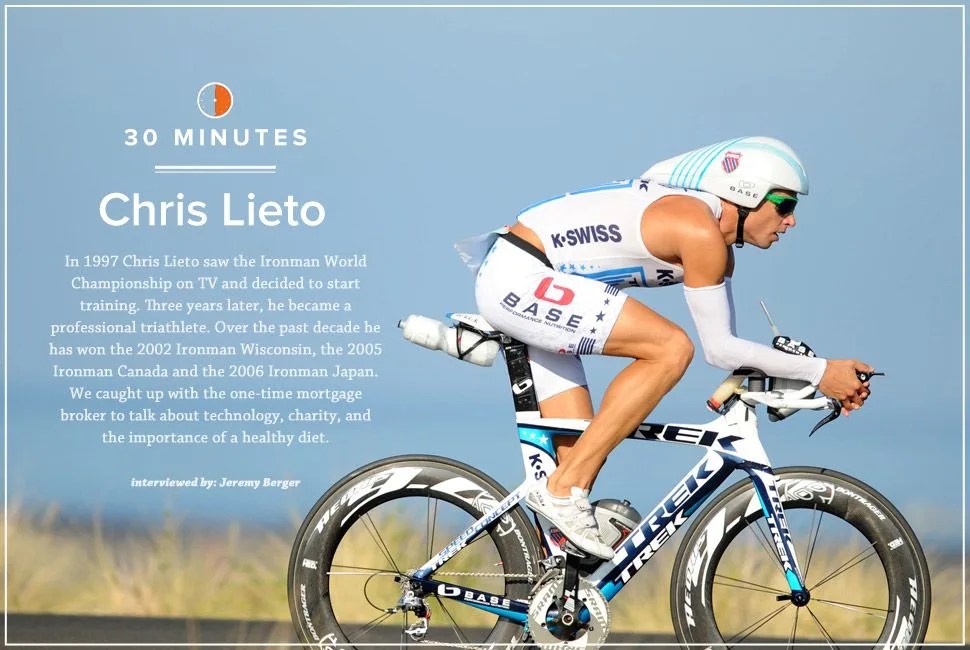In 1997 Chris Lieto saw the Ironman World Championship on TV and decided to start training. Three years later, he became a professional triathlete. Over the past decade he has won the 2002 Ironman Wisconsin, the 2005 Ironman Canada, and the 2006 Ironman Japan. Now, sponsored by Oakley, he lives with his wife and kids in Kailua-Kona, Hawaii, where he trains and works on his charity, More Than Sport. We caught up with the one-time mortgage broker to talk about technology, charity, and the importance of a healthy diet.
MORE GP INTERVIEWS: Lennard Zinn, Bike Maintenance Guru | Alex Walker, Safari Guide | Steve Dubbeldam, Founder of the Wilderness Collective
Q. What’s one thing every man should know?
A. The first thing that came to my mind is how to change a tire on a car or a bike.
Q. What’s the hardest thing you’ve ever done?
A. The hardest physical thing I’ve ever done is pushed through an Ironman when I felt like I was going to pass out and die. The walls started closing in on my vision. I felt like I was gonna pop just because of the heat here in Hawaii. Pushing through the heat and the pain, the quad muscles feeling like they’re tearing off the bone every stride…that’s hard.
Q. What are you working on right now?
A. I’m putting a lot of time into my passion, a charity called More Than Sport. My goal is to use my influence and my platform to raise awareness for causes around the world. I’ve spent the last six months developing a new website that’s going to launch in two months.
What keeps me going is putting goals out there that are big enough to keep me moving.
Q. Name one thing you can’t live without.
A. Probably right now it’s my phone. Technology allows me to do everything I need to do while still enjoying life: I can bike, run, drive, and go surfing with my son, all the while being able to answer emails and take calls.
